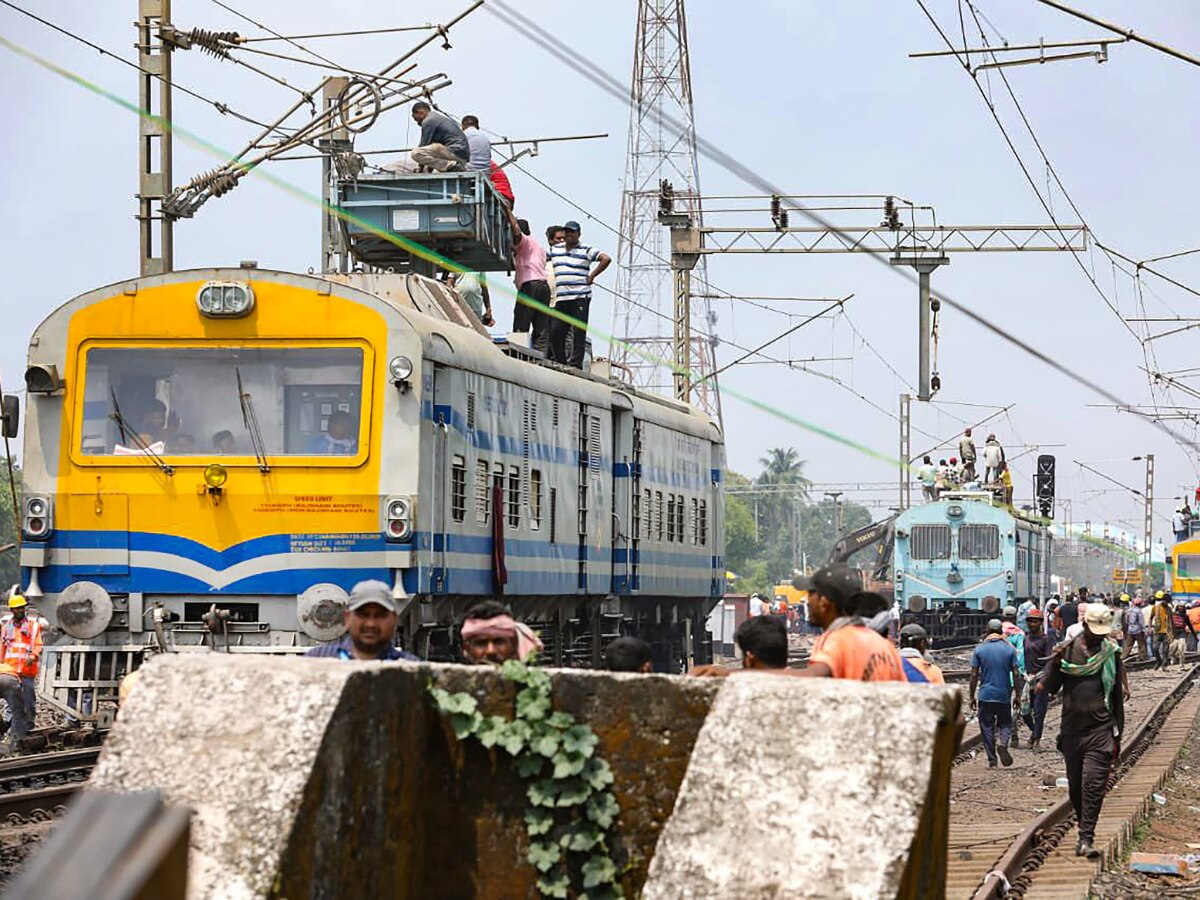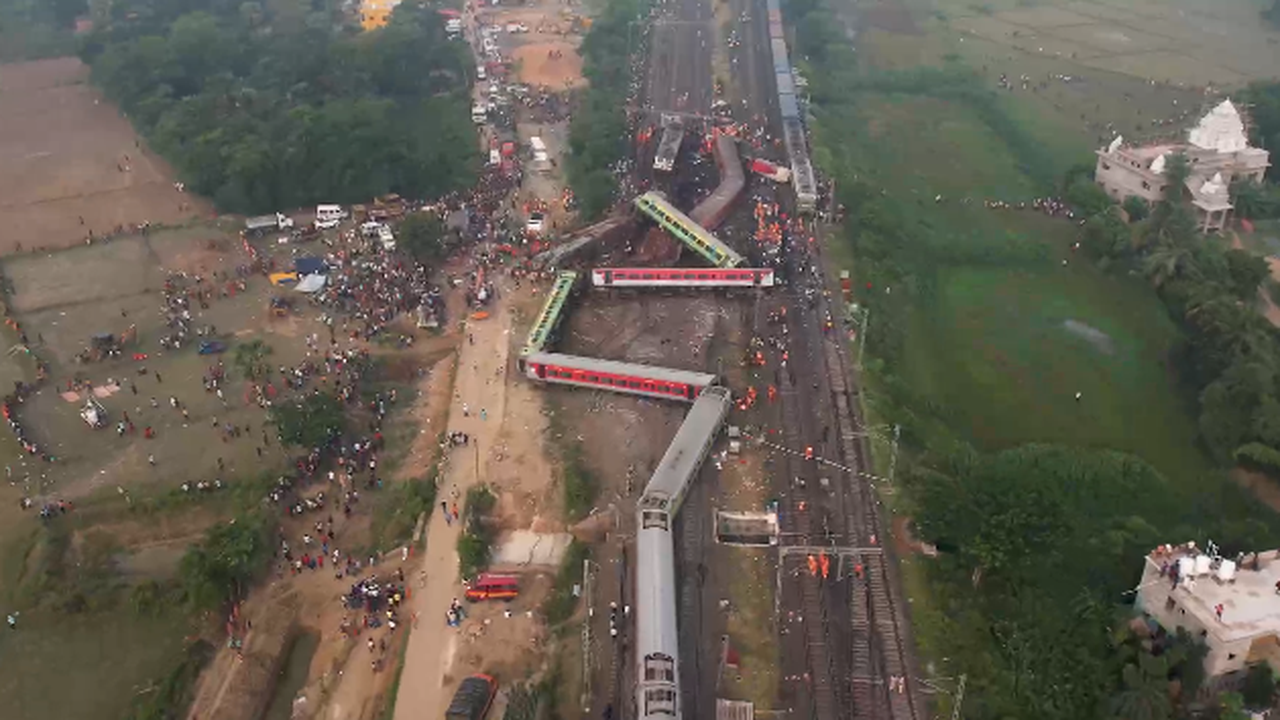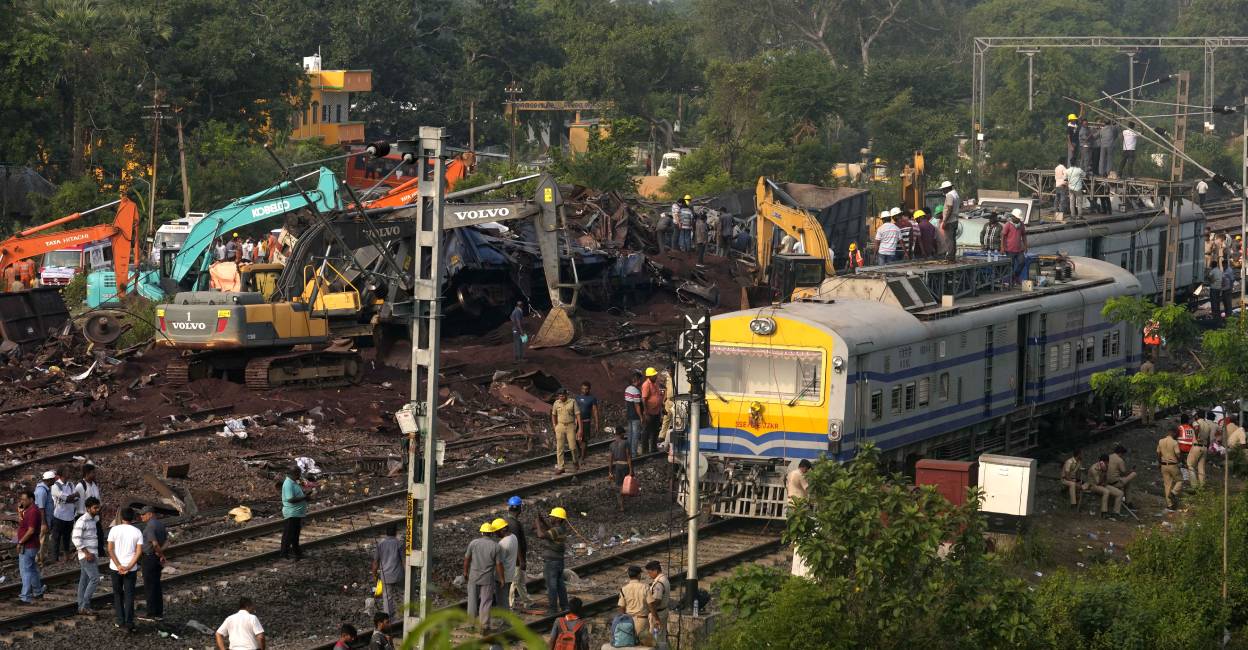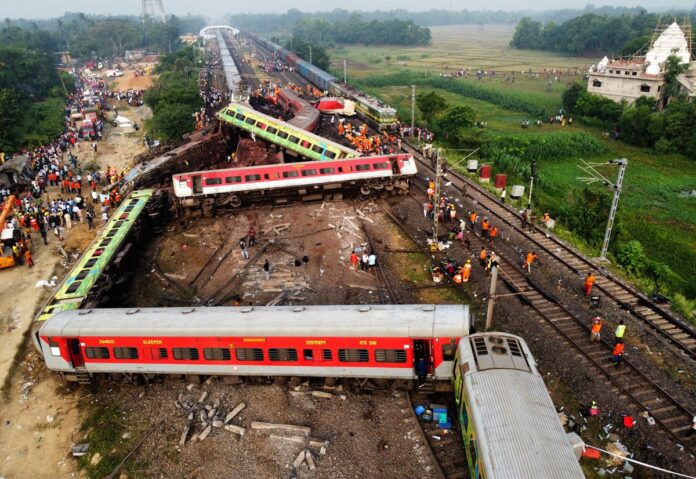In the aftermath of the devastating train accident in Odisha, Balasore district collector Datta Shinde has vowed to extend unwavering support to those who have lost their valuable documents. Among the dedicated individuals involved in the recovery efforts is Government Railway Police (GRP) constable Suresh Chandra Das, who cautiously approaches a cramped room within the dimly lit Railway Police Force barrack near Balasore railway station.
As he unlocks the black iron door, he handles it gingerly, fully aware of the precious contents within. With painstaking care, Das opens the door inch by inch, apprehensive that any sudden movement may cause the carefully arranged items to come tumbling down. Thus begins the arduous task of piecing together the remnants of shattered lives, one document at a time.
Inside the room lie 150 rucksacks and bags, painstakingly collected from the debris left behind by the tragic collision involving the Coromandel Express, a goods train, and the Yesvantpur-Howrah Express. This catastrophic incident, which claimed the lives of 288 individuals and left over 1,100 injured, stands as India’s worst rail accident in the past three decades. Each bag carries a poignant narrative, holding items of profound significance to the deceased and the injured—government documents that once defined their existence.
Rebuilding Lives After Odisha Train Accident: Recovering Lost Documents, Restoring Identity
Within the barrack, a small register maintained by the GRP meticulously records each bag’s assigned number, with a corresponding inventory of its contents. Among the assortment of bags, a black one holds a passbook, a mosquito net, and a blanket. An orange bag, belonging to Bishnupada Maity, safeguards his Aadhaar card and voter ID.
Similarly, SK Mansur Ali’s bag safeguards his birth certificate and office increment letter. Constable Das explains the gravity of their responsibility, stating, “We must handle these possessions with utmost care since they contain crucial documents belonging to the passengers who were on board the ill-fated trains. Matriculation certificates, PAN cards, and voter IDs are just a few examples of the documents we have come across. Some rucksacks even contain cash.”
Jitendra Nayak, a 29-year-old survivor, is among those desperately searching for his lost belongings. Nayak boarded the Coromandel Express in Balasore with the intention of traveling to Chennai for work as a supervisor in a glass factory. Tragically, his bag, which contained all his certificates—his graduation, matriculation, post-graduate computer diploma course, voter ID, and PAN cards—remains missing. Concerned, Nayak shares, “While my injuries will heal with time, I fear the recovery of my documents. Tracking down each bag and its owner will undoubtedly be a time-consuming process.”
Gadadhar Jena’s mother echoes this sentiment as she anxiously waits for news regarding her son’s documents. Jena, a 19-year-old currently hospitalized and scheduled for surgery on his injured leg, had embarked on the Coromandel Express to begin his hard-earned job as a security guard. She laments, “He lost his mobile phone, ₹1,400 in cash, and his essential documents such as his matriculation certificate. I worry about the time it will take to obtain duplicate copies of these certificates.”
Rebuilding Lives: The Task of Recovering Lost Documents After the Tragic Train Accident in Odisha
Sociologist Sunil Kumar Padhi, the head of the Department of Social Science at Fakir Mohan University in Balasore, emphasizes the criticality of documents like PAN cards, Aadhaar cards, and educational certificates for the impoverished population. These documents serve as indispensable proofs of identity, enabling individuals to secure employment and access government benefits. Padhi expresses his hope that the government will extend a
helping hand to those affected, stating, “These documents are the foundation of their social identity. It is my sincere wish that the government steps forward to offer support.”
While it is true that documents like Aadhaar cards provide the option to obtain duplicates through due process, the procedure can often be laborious and time-consuming, especially in rural areas of India where resources are limited. At the barrack, despite numerous attempts by individuals throughout the day to identify their belongings, most passengers from the Coromandel Express return disheartened. The majority of the bags recovered are from two bogeys of the Yesvantpur-Howrah Express. A local police officer from the Soro police station, choosing to remain anonymous, suggests that miscreants may have seized the bags belonging to the Coromandel Express passengers, as they were left unattended following the tragic accident.
Balasore district collector Datta Shinde affirms the administration’s commitment to supporting those who have lost their documents. He reassures the affected individuals, saying, “We have already retrieved over 500 mobile phones, which we will promptly return to their owners. Any passenger who has lost their documents can approach my office, and we will ensure the quickest possible issuance of duplicates.” In these trying times, the people of Odisha can find solace in the collective efforts dedicated to rebuilding their lives, one document at a time.

